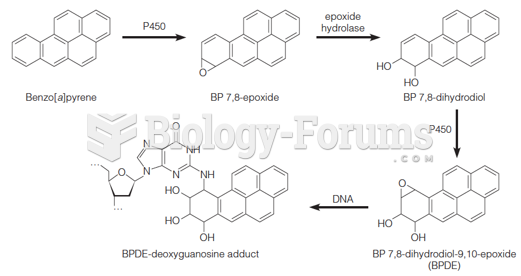|
|
|
The largest baby ever born weighed more than 23 pounds but died just 11 hours after his birth in 1879. The largest surviving baby was born in October 2009 in Sumatra, Indonesia, and weighed an astounding 19.2 pounds at birth.
In the United States, there is a birth every 8 seconds, according to the U.S. Census Bureau's Population Clock.
More than 2,500 barbiturates have been synthesized. At the height of their popularity, about 50 were marketed for human use.
In 1844, Charles Goodyear obtained the first patent for a rubber condom.
The eye muscles are the most active muscles in the whole body. The external muscles that move the eyes are the strongest muscles in the human body for the job they have to do. They are 100 times more powerful than they need to be.







